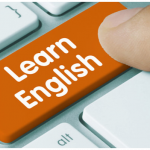گرامر در 6 دقیقه: کمیت سنجها (Quantifiers)
انتخاب بهترین تکنولوژی برای استفاده کار آسونی نیست اما فین Finn و کاترین Catherine تو این قسمت از گرامر در 6 دقیقه: کمیت سنجها (Quantifiers) بهت کمک میکنن تا بتونی موقع این تصمیم گیری مهم از چه کلماتی برای بیان اندازه و مقدار استفاده کنی. در انگلیسی به کلمه هایی مثل both، every، all، each، either و neither کمیت سنج یا همون Quantifiers میگن. این کلمه ها قبل از اسم میان تا مقدار یا تعداد چیزی رو مشخص کنن.
با گوش دادن به این پادکست 6 دقیقه ای (و خوندن متنش اگه بش نیاز داشتی)، می تونی نکات گرامری این درس رو هم بخونی و با نکات و مثال های این مبحث خوب آشنا بشی.
BBC 6 Minute Grammar – Intermediate – Quantifiers

متن پادکست:
Finn
Hello and welcome to 6 Minute Grammar with me, Finn.
Catherine
And me, Catherine. In this programme we’re talking about the words all, every, each, both, either and neither…
Finn
…also known as quantifiers. So let’s start by listening to Darren. He’s been talking about how to choose a tablet.
Catherine
While you listen, think about this question: Why do customers have difficulty choosing a tablet?
INSERT
Darren
Should you have either this one or that one? All customers choosing a tablet ask themselves that question because each tablet is slightly different. Take the Apik 1 and the Negus 2. Both tablets have similar specs. While neither tablet is heavy, the Negus 2 is lighter. This could make a difference every time you go out. Each of the tablets has 2 gigabytes of RAM, but the Negus 2 is the faster device. And then there’s the cost. While neither of them seems much better than the other, the Negus 2 is considerably cheaper.
Finn
That was Darren. So we asked you: Why do buyers have difficulty choosing tablets?
Catherine
And the answer is: Because each tablet has slightly different features.
Finn
Now each, every and all can mean the full amount or total number of something. So we could also say every tablet or all tablets.
Catherine
Each and every are followed by a singular noun and verb. We say each tablet has and every tablet has – but all is followed by a plural noun and verb, so it’s all tablets have. We could also say all the tablets have, but we don’t use the with each or every.
Finn
OK. There’s also a slight difference in meaning between every and each. We often use each when we’re thinking about the individual members of a group.
Catherine
That’s right. So to talk about about the features of individual tablets, Darren said each tablet. But here’s what he said later on.
INSERT
Darren
This could make a difference every time you go out.
Catherine
There he’s thinking about all the times, not individual times.
Finn
Right. Listen for more quantifiers in this clip.
INSERT
Darren
Should you have either this one or that one? Both tablets have similar specs. While neither tablet is heavy, the Negus 2 is lighter.
Catherine
There we heard the words either, neither, or as some people say, either, neither, and both. We use these quantifiers to talk about two people or things. So in the phrase Both tablets have similar specs, Both tablets means this tablet and the other tablet.
Finn
Neither tablet is heavy. That means not this one and not the other one.
Catherine
Darren asked: Should you have either this one or that one? Either is used mainly in questions and negatives, to indicate a choice between two, or sometimes more than two, options.
Finn
Right. Let’s take a quick look at the verbs we use after both and neither. Listen. Both the tablets have similar specs. Neither tablet is heavy.
Catherine
So after both, the verb is positive and plural – have. But after either and neither, the verb is positive and singular – is. Let’s have another clip.
INSERT
Darren
Each of the tablets has 2 gigabytes of RAM, but the Negus 2 is the faster device. While neither of them seems much better than the other, the Negus 2 is considerably cheaper.
Catherine
So we heard each of the tablets and neither of them. You can use all, each, neither, either and both with of and a plural noun phrase – like the tablets – or with a pronoun – like them.
Finn
Yes. So you could say both of the tablets or both of them.
Catherine
Yes and in this case, each of the tablets means the same as both of the tablets.
Finn
Because there are only two.
Catherine
Exactly.
Finn
But we say each of the tablets has – that’s a singular verb – but both of the tablets have – and that’s a plural verb.
IDENT
6 Minute Grammar from BBC Learning English.
Catherine
And it’s quiz time!
Finn
OK.
Catherine
Number one: Which is correct: a) Both of us lives in London. Or b) Both of us live in London.
Finn
And the answer is b) Both of us live in London.
Catherine
And let’s do number two: Which is correct? a) Neither of us likes the countryside. Or b) Neither of us doesn’t like the countryside.
Finn
This one… is a) Neither of us likes the countryside.
Catherine
Number three: Which is correct? a) Answer each questions. Or b) Answer each of the questions.
Finn
The answer is b). Answer each of the questions.
Catherine
Fantastic! And that’s the end of the quiz.
Finn
There’s more about this at bbclearningenglish.com. Join us again soon for more 6 Minute Grammar.
Both
Bye!
Quantifiers: all, every, each, both, neither, either
معنی و کاربرد all, every, each
کمیت سنج ها در زبان انگلیسی کلماتی هستند که درباره ی تعداد یا مقدار چیزی به ما اطلاعات می دهند. کلمات all، every و each به کل مقدار یا تعداد چیزی در یک گروه اشاره می کنند اما کاربرد آن ها با هم فرق دارد. در گرامر در 6 دقیقه: کمیت سنجها (Quantifiers) با کاربرد این کلمه ها به همراه اسم آشنا می شویم.
کلمه all یا all the با اسم جمع یا غیرقابل شمارش به کار می رود. کلمه every و each با اسم مفرد می آیند.
مثال:
All (the) students have their own rooms.
All (the) information is on the website.
Every/Each student has their own room. (یا has his/her own room.)
کلمه every و each اغلب می توانند به جای هم به کار روند اما وقتی داریم از کل چیزی در یک گروه حرف می زنیم ترجیح به استفاده از every است و وقتی درمورد اعضای یک گروه به صورت فرد فرد حرف می زنیم، ترجیح استفاده از each است.
I love every painting by that artist.
Each painting is unique.
برای تاکید بر هر یک دونه از چیزی باید از every استفاده کنیم:
You’ve eaten every chocolate in the box!
برای فقط دو مورد از چیزی می توانیم از each استفاده کنیم:
In baseball, how many players are there in each team?
کلمات all و each (اما نه every) می توانند با of و یک اسم جمع یا ضمیر به کار روند. توجه کنید که each of که بعدش اسم جمع یا ضمیر می آید با فعل مفرد به کار میرود:
All of the students have their own rooms.
Each of them has their own room.
ساختار
با اسم جمع:
All (the) students
All of the students
Each of the students
با ضمیر جمع:
All of them
Each of us
با اسم غیرقابل شمارش:
All (the) information
All of the information
با اسم مفرد:
Every student
Each student
توجه: حرف تعریف (articles)
قبل از every یا each حرف تعریف (the, a/an) به کار نمیرود.
Every painting is unique.
NOT: The every painting is unique.
نکته: صفات ملکی و اشاره (possessive and demonstrative adjectives)
قبل از صفات یا ضمایر ملکی (his, her, etc) و اشاره (these, those)، کلمه ی every به کار نمی رود.
Tarantino’s a brilliant director. I’ve seen all his films.
NOT: I’ve seen every his films.
معنی و کاربرد both, neither, either
ما از (both (of), neither (of) either (of برای صحبت از دو نفر یا دو چیز استفاده می کنیم. Both به معنی این و آن یکی است. Neither به معنی نه این و نه آن یکی است. Either به معنی این یا آن یکی است.
Either اغلب در جملات سوالی و منفی به کار می رود. مثال:
I like both pictures. / I like both of the pictures.
Neither picture is right for the room. / Neither of the pictures is right for the room.
She didn’t buy either picture in the end. / She didn’t buy either of the pictures in the end.
اغلب از این ساختار استفاده می کنیم:
both… and, neither… nor,and either… or
مثال:
She plays both the violin and the guitar.
Neither me nor my brother are married.
Should I wear either this shirt or that one?
ساختار
با اسم جمع:
both pictures
both the/these pictures
both of the/these pictures
neither of the/these pictures
either of the/these pictures
با ضمیر جمع:
both of them
neither of them
either of them
با اسم مفرد:
neither picture
either picture
نکته: افعال
بعد از (neither (of فعل همیشه مثبت است و می تواند مفرد یا جمع باشد.
Neither of these answers is/are correct.
اما بعد از neither + noun فعل همیشه مفرد است.
Neither answer is correct.
After both (of) the verb is always positive and plural. We don’t use both in negative structures.
بعد از (both (of فعل همیشه مثبت و جمع است. ما از both در جملات منفی استفاده نمیکنیم.
Both of these answers are wrong.
NOT: Both of these answers are not correct.
امیدوارم از مطلب گرامر در 6 دقیقه: کمیت سنجها (Quantifiers) لذت برده باشید. برای تمرین و یادگیری موضوعات دیگر گرامری در سطح intermediate می توانید از صفحه ی گرامر در ۶ دقیقه – Intermediate دیدن کنید یا مباحث گرامری در سطوح دیگر را از صفحه ی آموزش گرامر زبان انگلیسی مطالعه کنید.











